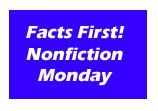 Image via Wikipedia
Image via WikipediaLast night was another meeting of the #YALitChat on Twitter. And part of me really wanted to join in, because I loved the authors being highlighted (Michael Grant, Scott Westerfeld, and Jay Asher). The other part of me wanted to avoid the internet for a couple of hours because the topic of the evening just grated my nerves in the worst possible way.
The topic? Why men write YA.
If nothing else, this was annoying because it's not a topic worthy of a two hour chat, because I can answer it in three words: they want to.
And I think it became quite clear that it wasn't a hot topic because while there were some great conversations going on, few of them that I saw actually addressed what was the main topic of the night!
Instead, there was a lot of hand wringing over what do boys want to read, and whether it's important to have male authors in order to appeal to them.
Which makes me roll my eyes, because I spent years in English classes reading nothing but male authors and fighting like hell to get to read women. For more on this, I direct you to Maureen Johnson.
I'm not saying what's good for the goose is good for the gander - that because my education sucked boys should now be forced to read nothing but Little Women and Little House on the Prairie and Twilight. That doesn't help anybody.
What bothers me is seeing authors talk about writing specifically what appeals to "boys" and what appeals to "girls." First of all, it sets up gender as a binary, which current scholarship on gender and sexuality doesn't support. Second, even if gender is binary, it implies that all boys want the same thing, and all girls want something totally different.
At one point I jumped into the chat when Scott Westerfeld asked if "the shift from paranormal romance to dystopian been correlated to more boys reading?" I replied that recent dystopian novels have all looked awfully romancey to me (which could be a whole other post - anyone interested in my thoughts on Whither?). I'd love to see a straight up dystopia again, in the vein of Uglies or the first book of The Hunger Games. Instead a lot of these books are paranormal romances, but with dictatorial governments rather than vampires or fairies or angels. Sarwat Chadda, of the awesome Billi SanGreal books, asked me if I thought dystopian was "real" or something bigged up by publishers. After fangirling for a second over a REAL LIVE AUTHOR actually asking MY OPINION on something, we got into a great discussion about dystopian lit, and paranormal, and paranormal romances, that culminated with Dawn Metcalf coming up with the best ACT vocab comparison of the night: "romance" is to "paranormal" as "lemony" is to "fresh."
However the most illuminating part of the dystopian/romance part of the convo was when fellow chatter mimicross said, in response to my point on dystopians becoming more like romance, "Well, if world is ending, what would you want to be doing?" And this got me back to my thinking on boy books vs. girl books. Because when I was in high school, I hated romances. Part of this was because I was more interested in dating other girls at the time and wasn't finding many books that addressed that, but even after I started dating my first girlfriend I wasn't all that romantically inclined (this may be why the relationship didn't even last a month...). Writing a book that is supposed to appeal to "girls" is likely to backfire on someone like me - I want explosions and guts and car chases. And I know plenty of boys and men that prefer more relationship-oriented books (maybe not straight-up romances...or maybe they're just embarassed to discuss such an 'un-manly' topic with me!).
It was especially troubling to hear authors talking like this. I expect the marketing department to worry about who is going to end up reading a book - it's their job to get it into the hands of the most profitable demographic. But as writers, why don't we concentrate first on writing an appealing story - and if you want to think about marketing, think about the type of person you want to read the book - is this for someone quiet and nerdy, someone brash and hyperactive? What about brash and nerdy? These are qualities that aren't attached to gender.
Ultimately my opinion of the night boils down to Twitter being a terrible place to have a nuanced chat - something that came up earlier in the day during the new #GayYA chat, where all of us were unfailingly aware of how limiting those 140 characters were (and the one time outside of a specifically feminist space I've heard people throwing around terms like "cisgendered"!) #YALitChat is great for promoting an author or a broad subject (why a genre is popular, how to break into the business), but delicate subjects related to gender should probably be left to overly-long blog posts.








